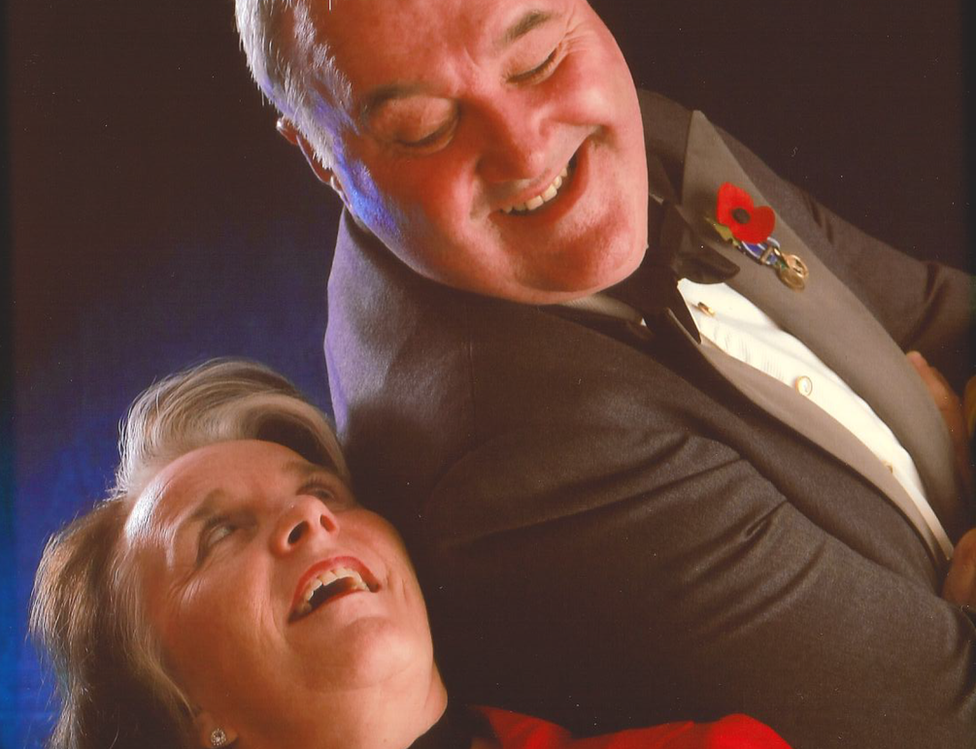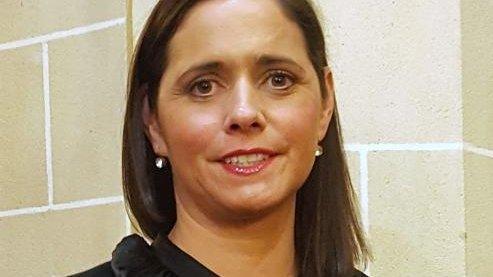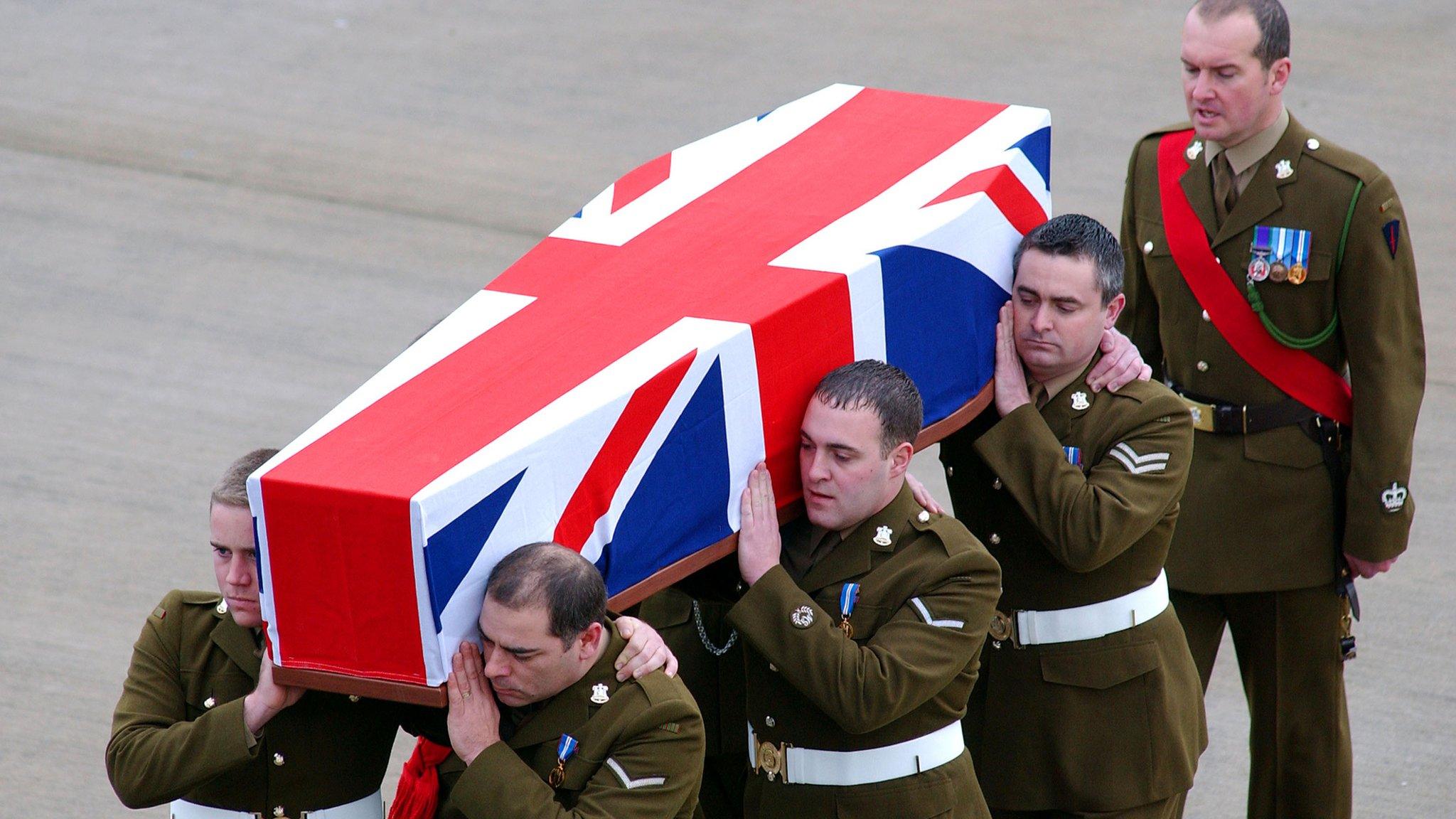Woman wins right to late partner's military pension in landmark ruling
- Published

Jane Langford had been in a relationship with Air Commodore Christopher Green for 15 years
A woman has won the right to her late partner's military pension in a landmark ruling for unmarried couples.
Air Commodore Christopher Green had been in a relationship with Jane Langford, 72, for 15 years when he died unexpectedly in 2011.
The RAF pension scheme allows unmarried partners of officers to receive their pension if they die.
But Ms Langford was disqualified because she had not formally dissolved her marriage to her husband.
On Wednesday the Court of Appeal unanimously held that this rule breached Ms Langford's human rights, in a move that is likely to have far-reaching consequences for other unmarried couples in the public sector.
The rule - which was held to be unlawful in Ms Langford's case - is found in most public sector schemes, including education, the police, fire service, NHS and civil service.
Anyone who has been refused a surviving partner's pension because they had not divorced an ex-partner may now be able to bring a claim, including for back payments.
Lord Justice McCombe said the RAF's "broad exclusionary rule" barring married partners from receiving such compensation was "a sledgehammer to crack a nut".
The judge ruled that the discrimination in the rule was "unlawful and cannot be justified or proportionate in Ms Langford's case".
Sonia Bamford from Candey Solicitors, which represented Ms Langford, said the ruling was "a gateway to justice" for others who had been denied pension rights following the death of a partner.
Air Cdre Green was a serving officer in the RAF when he died suddenly from a heart attack.
Ms Langford, who lives near Reading in Berkshire, was shocked when she was told she would not be eligible for his pension. She had been estranged from her husband for 17 years.
She said she struggled to pay her mortgage and was forced to rent out part of her home while she fought for eight years for the right to Mr Green's pension.
"I can't take it in," Ms Langford told the BBC following the judgement. "I can't believe it's over and the worry I've had for the last eight years is gone.
"There hasn't been much spare money. Now I can have a holiday, I can have my friends and children to stay, I can buy Christmas presents for my children."
"I'm so pleased if it can benefit others in a similar situation," she added. "I wouldn't like to see anybody treated the way I was treated."
The judge accepted it was a "legitimate aim" of the RAF pension scheme "to achieve parity of treatment between married and unmarried partners of scheme members".
"But such parity is in reality achieved not by imposing restrictions based on a partner's marital status, but by requiring the demonstration of a substantial, exclusive and financially dependent relationship in practice," he said.
Ms Langford previously claimed entitlement to an armed forces pension, but her claim was dismissed by the High Court in 2015.
- Published8 February 2017

- Published8 November 2014

- Published6 December 2017

- Published1 February 2019